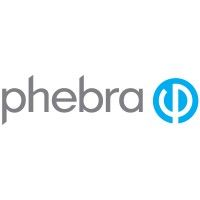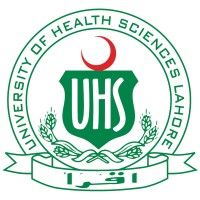Over the last ten years, cell-based immunotherapy has emerged as a promising approach for treating solid tumors. Several companies, including Iovance Biotherapeutics, Obsidian Therapeutics, Biosyngen, KSQ Therapeutics, and others, are currently engaged in the development and production of TIL therapies, which have the potential to significantly impact and enhance the TIL therapies market.
LAS VEGAS, Aug. 12, 2025 /PRNewswire/ -- DelveInsight's
Tumor-Infiltrating Lymphocyte Therapies Market Size, Target Population, Competitive Landscape & Market Forecast report includes a comprehensive understanding of current treatment practices, addressable patient population, which includes top indications such as melanoma, cervical cancer, non-small cell lung cancer (NSCLC), endometrial cancer, head and neck squamous cell carcinoma (HNSCC), colorectal cancer, and other solid tumors. The selected indications are based on approved therapies and ongoing pipeline activity. The report also provides insights into the emerging tumor-infiltrating lymphocyte therapies, market share of individual therapies, and current and forecasted market size from 2020 to 2034, segmented into 7MM.
Key Takeaways from the Tumor-Infiltrating Lymphocyte Therapies Market Report
As per DelveInsight's analysis, the total market size of tumor-infiltrating lymphocyte therapies in the 7MM is expected to surge significantly by 2034.
The report provides the total potential number of patients in the indications, such as
melanoma, cervical cancer, non-small cell lung cancer (NSCLC), endometrial cancer, head and neck squamous cell carcinoma (HNSCC), colorectal cancer, and other solid tumors.
Leading tumor-infiltrating lymphocyte therapies companies, such as
Obsidian Therapeutics, Biosyngen, KSQ Therapeutics, and others, are developing novel tumor-infiltrating lymphocyte therapies that can be available in the tumor-infiltrating lymphocyte therapies market in the coming years.
Some of the key tumor-infiltrating lymphocyte therapies in the pipeline include
OBX-115, BST02, KSQ-001 EX, KSQ-004 EX, and others.
In
June 2025, Iovance Biotherapeutics announced that the Journal of Clinical Oncology has published the final analysis from the Phase II C-144-01 clinical trial evaluating the individualized T cell therapy AMTAGVI in patients with advanced melanoma. These five-year follow-up results are being simultaneously presented during an oral session today at the 2025 American Society of Clinical Oncology (ASCO) Annual Meeting.
In
June 2025, Obsidian Therapeutics announced initial Phase I safety and efficacy data from the Phase I/II Agni-01 multicenter study of OBX-115 a summarized the data will be presented by the Director and Chief Administrative Officer of UofL Health – Brown Cancer Center/Oncology Service Line at the 2025 American Society of Clinical Oncology (ASCO) Annual Meeting.
In
April 2025, KSQ Therapeutics announced the first patient dosed in the Phase I/II clinical study of KSQ-004EX, a novel CRISPR-engineered Tumor Infiltrating Lymphocyte (eTIL) therapy. KSQ-004EX consists of eTIL in which the SOCS1 and Regnase-1 genes are inactivated by CRISPR/Cas9 gene editing, giving it the potential to be a best-in-class treatment for a variety of solid tumor indications. KSQ's CRISPRomics platform identified SOCS1 and Regnase-1 as key genes inhibiting the ability of TIL to eradicate solid tumors in preclinical models.
Discover which indication is expected to grab the major tumor-infiltrating lymphocyte therapies market share @
Tumor-Infiltrating Lymphocyte Therapies Market Report
Tumor-Infiltrating Lymphocyte Therapies Market Dynamics
The tumor-infiltrating lymphocyte therapies market is poised for transformative growth, driven by
increasing interest in personalized and cell-based immunotherapies for solid tumors. The market gained significant momentum following the U.S. FDA
approval of Iovance Biotherapeutics' AMTAGVI in 2024 for advanced melanoma, marking the
first regulatory validation of a TIL therapy and paving the way for wider clinical adoption and investor confidence.
A major driver of the market is the
growing unmet need in solid tumor treatment, where conventional immunotherapies like checkpoint inhibitors have limited efficacy for many patients. TIL therapies offer a more tailored solution, capable of overcoming tumor immune evasion by targeting multiple neoantigens.
Advances in cell manufacturing, automation, and closed-system bioprocessing are also contributing to improved scalability and reduced turnaround times, addressing one of the historic limitations of TILs, the complex and time-intensive production process.
The
competitive landscape is becoming increasingly dynamic, with numerous biotechnology firms and academic institutions entering the TIL space.
Strategic partnerships, technology licensing, and mergers & acquisitions are prevalent as players aim to build robust manufacturing capabilities and differentiate their platforms using gene editing, selection techniques, or combination regimens with checkpoint inhibitors.
However, the market faces several challenges, including
high production costs, patient-specific manufacturing logistics, and the
need for specialized infrastructure.
Reimbursement hurdles, regulatory complexities, and the
need for biomarker-based patient selection also represent significant barriers to widespread commercialization. Nonetheless,
continued progress in artificial intelligence for neoantigen identification, cryopreservation methods, and decentralized manufacturing models could mitigate many of these issues over time.
In conclusion, the TIL therapies market is at an inflection point, transitioning from early-stage development to commercial viability. The combination of strong clinical data, regulatory tailwinds, and technological innovation is expected to drive robust growth in the coming decade. As more TIL therapies move into late-stage trials and receive regulatory approval, their role in the broader oncology treatment landscape is likely to expand, especially for cancers with high unmet needs and limited therapeutic options.
Tumor-Infiltrating Lymphocyte Therapies Treatment Market
TIL therapies represent a new generation of personalized immunotherapy designed to leverage a patient's own immune system to combat solid tumors. This approach involves extracting TILs from a patient's tumor, expanding and modifying them outside the body, and then reinfusing them to stimulate a targeted immune response. After years of academic research, the field reached a significant milestone in 2024 with the FDA approval of AMTAGVI by Iovance Biotherapeutics for treating advanced melanoma.
AMTAGVI is an autologous T cell therapy derived from a patient's tumor, approved for adult patients with unresectable or metastatic melanoma who have previously received a PD-1 inhibitor. For those with a BRAF V600 mutation, prior treatment with a BRAF inhibitor, with or without a MEK inhibitor, is also required. Although its exact mechanism of action is not fully understood, AMTAGVI is believed to work by utilizing the patient's own TILs.
These TILs naturally develop in response to cancer and are capable of recognizing and attacking tumor-specific markers. However, as cancer progresses, the effectiveness of these native TILs diminishes. AMTAGVI seeks to restore and enhance its function by reintroducing activated TILs into the patient. The therapy is also being evaluated in late-stage clinical trials, both as a standalone treatment and in combination with pembrolizumab, for other cancers such as non-small cell lung cancer and cervical cancer.
Learn more about the tumor-infiltrating lymphocyte therapies @
Tumor-Infiltrating Lymphocyte Therapies Analysis
Key Emerging Tumor-Infiltrating Lymphocyte Therapies and Companies
TIL therapies have a pipeline, with candidates such as O
BX-115, BST02, KSQ-001 EX, and KSQ-004 EX in early Phase (I/II) trials targeting diverse indications like advanced gastric, gastroesophageal junction, and other solid tumors.
OBX‑115 is an advanced tumor-infiltrating lymphocyte (TIL) therapy developed using Obsidian's proprietary cytoDRIVE platform. This therapy involves genetically modifying TILs to express membrane-bound interleukin-15 (mbIL‑15), which enhances T cell proliferation, durability, and antitumor effectiveness—eliminating the need for high-dose IL‑2, a key source of toxicity in traditional TIL therapies.
The OBX‑115 TILs are engineered to produce mbIL‑15 linked to a drug-responsive domain, enabling controlled, dose-dependent increases in mbIL‑15 levels when an FDA-approved stabilizing agent, acetazolamide (ACZ), is administered. This approach further removes the requirement for IL‑2.
In September 2024, Obsidian Therapeutics announced that the U.S. FDA granted OBX‑115 Regenerative Medicine Advanced Therapy (RMAT) designation for treating patients with unresectable or metastatic melanoma that no longer responds to immune checkpoint inhibitors (ICIs).
The anticipated launch of these emerging therapies are poised to transform the tumor-infiltrating lymphocyte therapies market landscape in the coming years. As these cutting-edge therapies continue to mature and gain regulatory approval, they are expected to reshape the tumor-infiltrating lymphocyte therapies market landscape, offering new standards of care and unlocking opportunities for medical innovation and economic growth.
To know more about tumor-infiltrating lymphocyte therapies clinical trials, visit @
Tumor-Infiltrating Lymphocyte Therapies Treatment
Tumor-Infiltrating Lymphocyte Therapies Overview
Tumor-infiltrating lymphocyte (TIL) therapy is an advanced type of adoptive cell therapy (ACT) that involves isolating naturally occurring, polyclonal T cells from within a patient's tumor microenvironment, expanding them outside the body, and reintroducing them after the patient undergoes non-myeloablative lymphodepletion. Unlike engineered approaches such as CAR-T or TCR therapies, TIL therapy leverages the natural tumor-targeting ability of the patient's own T cells, which are already primed to detect a broad range of tumor-specific neoantigens.
The strategy is based on the idea that these tumor-resident T cells can generate a more effective and biologically relevant immune response. Once infused back into the patient, the expanded TILs can survive, home in on tumor sites, and exert cytotoxic effects on cancer cells. This approach has shown lasting clinical responses, especially in immunologically active cancers like metastatic melanoma, cervical cancer, and non-small cell lung cancer (NSCLC), including in cases resistant to immune checkpoint inhibitors.
Tumor-Infiltrating Lymphocyte Therapies Epidemiology Segmentation
The tumor-infiltrating lymphocyte therapies market report proffers epidemiological analysis for the study period 2020–2034 in the 7MM, segmented into:
Total Cases of Selected Indications for TIL Therapies
Total Eligible Patients of the Selected Indications of TIL Therapies
Total Treated Cases in Selected Indications for TIL Therapies
Scope of the
Tumor-Infiltrating Lymphocyte Therapies
Market Report
Tumor-Infiltrating Lymphocyte Therapies Therapeutic Assessment: Tumor-Infiltrating Lymphocyte Therapies' current marketed and emerging therapies
Tumor-Infiltrating Lymphocyte Therapies
Market Dynamics: Conjoint Analysis of Emerging Tumor-Infiltrating Lymphocyte Therapies Drugs
Competitive Intelligence Analysis: SWOT analysis and Market entry strategies
Unmet Needs, KOL's views, Analyst's views, Tumor-Infiltrating Lymphocyte Therapies Market Access and Reimbursement
Discover more about tumor-infiltrating lymphocyte therapies in development @
Tumor-Infiltrating Lymphocyte Therapies Clinical Trials
Table of Contents
Related Reports
Non-Small Cell Lung Cancer Market
Non-Small Cell Lung Cancer Market Insights, Epidemiology, and Market Forecast – 2034 report delivers an in-depth understanding of the disease, historical and forecasted epidemiology, as well as the market trends, market drivers, market barriers, and key NSCLC companies, including
AstraZeneca, Boehringer Ingelheim, Takeda, Johnson & Johnson Innovative Medicine, Eli Lilly and Company, Merck, Bristol-Myers Squibb, Roche, Shanghai Henlius Biotech, AbbVie, Daiichi Sankyo, Nuvation Bio, PDC*line Pharma, Moderna Therapeutics, Pfizer, GSK, Gilead Sciences, BieGene, Nuvalent, among others.
Melanoma Market
Melanoma Market Insights, Epidemiology, and Market Forecast – 2034 report delivers an in-depth understanding of the disease, historical and forecasted epidemiology, as well as the market trends, market drivers, market barriers, and key melanoma companies, including
Incyte Corporation, Merck Sharp & Dohme LLC, Pfizer, Bristol-Myers Squibb, Medarex, BioVex Limited, Amgen, IO Biotech, Celgene, among others.
Endometrial Cancer Market
Endometrial Cancer Market Insights, Epidemiology, and Market Forecast – 2034 report delivers an in-depth understanding of the disease, historical and forecasted epidemiology, as well as the market trends, market drivers, market barriers, and key endometrial cancer companies, including
GlaxoSmithKline, Merck & Co., AstraZeneca, Karyopharm Therapeutics, Evergreen Therapeutics, Incyte Corporation, among others.
Cervical Cancer Market
Cervical Cancer Market Insights, Epidemiology, and Market Forecast – 2034 report delivers an in-depth understanding of the disease, historical and forecasted epidemiology, as well as the market trends, market drivers, market barriers, and key cervical cancer companies, including
Roche, AstraZeneca, Precigen, Puma Biotechnology, Iovance Biotherapeutics, Nykode Therapeutics, ISA Pharmaceuticals, Regeneron, Transgene, Daiichi Sankyo, among others.
About DelveInsight
DelveInsight is a leading Business Consultant and Market Research firm focused exclusively on life sciences. It supports pharma companies by providing comprehensive end-to-end solutions to improve their performance. Get hassle-free access to all the healthcare and pharma market research reports through our subscription-based platform PharmDelve
.
Contact Us
Shruti Thakur
[email protected]
+14699457679
Logo:
SOURCE DelveInsight Business Research, LLP
WANT YOUR COMPANY'S NEWS FEATURED ON PRNEWSWIRE.COM?
440k+
Newsrooms &
Influencers
9k+
Digital Media
Outlets
270k+
Journalists
Opted In
GET STARTED














